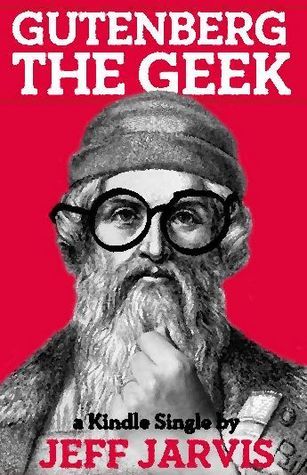What do you think?
Rate this book


20 pages, Kindle Edition
First published February 1, 2012
In the end, it was his cash flow and equity structure that did him in. After pivoting from one business to another, solving myriad technology problems with keen insight, recruiting a team, raising capital, perfecting his product through secret alphas and public betas, launching his business, finding customers, and earning revenue, the founder's main investor called in his loan and, in a nasty legal battle, took possession of most of the company's assets.These first two sentences confused me and set me up for a real struggle as I read this book. :-(
I'll be the first to admit this book wasn't the most well written thing I've ever read, but I liked it nonetheless. Of course I knew the basic story of Gutenberg, but Gutenberg the Geek encouraged me to look at him as not only an inventor, but also an entrepreneur. It gave an excellent, short overview of the creation of the press while showing Gutenberg in a somewhat different light. I also learned that the reason the printing press blew up around the world is because Gutenberg essentially made it open source out of spite, teaching everyone who wanted to know how to use the press so that his competitors didn't have a monopoly. The book was a little too enthusiastic about comparing the printing press to the internet and in comparing Gutenberg to Steve Jobs. I got it the first time; Jarvis didn't need to slam it down my throat. Other than that though it was quite enjoyable, and very short. It's definitely worth the half hour or less it would take to read the book.